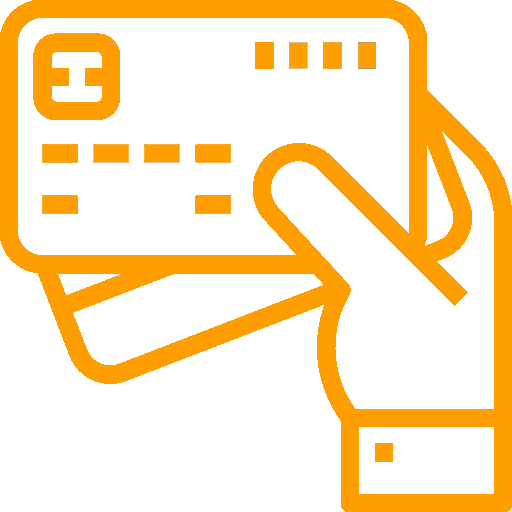Responsible Entities
- The disconnect between the government’s efforts to transition to a cashless economy and its digitalization plan.
Responsible Entities
Date 6/30/2020
- Transitioning to a cashless economy should not be limited to automation; rather, moving to cashless transactions is an integral part of the digitalization process.
Responsible Entities
Date 6/30/2020
Responsible Entities
Date 8/14/2024
- Overlapping jurisdictions between the National Council for Payments and other government agencies.
- Create an executive secretariat for the National Council for Payments, and task it with overseeing the implementation of its decisions and coordinating between the various competent government entities to prevent conflicts and overlapping powers.
- The National Council for Payments does not have in place a clear plan, with specific interim objectives to guide the universal implementation of the cashless payment system.
Responsible Entities
Date 2/2/2020
- The National Council for Payments should develop a national plan, which includes clearly defined interim objectives, well-developed implementation mechanisms, and criteria for measuring and assessing performance.
Responsible Entities
Date 2/2/2020
- The Minister of Finance announced that the rate of electronic collection of taxes and customs duties has increased.
- CBE has introduced a national e-payment system (Meeza Card), which provides users access to various financial services, thus enhancing financial inclusion.
- The Minister of Interior presented an updated overview of the scheme to develop the national ID smart card.
Responsible Entities
Date 2/2/2020
- In spite of all efforts exerted to promote financial inclusion and limit cash transactions, a number of institutional and legislative barriers continue to persist.
Responsible Entities
Date 1/21/2019
- Address the legal and institutional barriers to creating a cashless economy.
- Expedite the issuance of the executive regulations of Law No. 18 of 2019— The Use of Cashless Payment Methods Law.
Responsible Entities
Date 3/21/2019
- On March 11, 2019, the House of Representatives passed a law to regulate the use of non-cash means of payment. Law No. 18 of 2019 was signed by the President and published on April 16, 2019. Issuance of the law’s executive regulations and its implementation and enforcement remain to be seen.
Responsible Entities
Date 3/11/2019
- With few exceptions, all laws regulating sovereign payments do not include provisions that require electronic or bank payments. Currently, the use of an electronic payment mechanism is required only under Law 201 of 2014 (amending the Income Tax Law No. 91 of 2005) and Decrees No. 117 and 172 of 2015 issued by the Minister of Finance, which pertain to income tax payments.
Responsible Entities
Date 1/21/2019
- Amend the relevant laws regulating sovereign payments so that they mandate the use of bank or electronic payment methods for concluding transactions that exceed a prescribed threshold amount. The amendments should also allow the use of mobile payments for transactions that fall below the threshold amount.
- Enforce the law with respect to transactions carried out by the private sector or individuals if the transaction amount exceeds the thresholds stipulated in the law or its executive regulations, once issued.
Responsible Entities
Date 3/21/2019
- Law 18 of 2019 requires all government entities, state-owned companies, and private enterprises to use cashless means for making all payments to their employees, experts, and board and committee members, as well as the social insurance subscriptions. Besides, the law requires government entities and agencies, and public legal persons, referenced in Article 2, to pay all dues to contractors, suppliers, and service providers through non-cash methods, whenever the dues exceed a specified threshold amount to be specified in the executive regulations of the law.
Responsible Entities
Date 3/11/2019
- None of the laws regulating non-bank financial services include any provision that requires parties to use electronic payments or payments through bank accounts (e.g. Companies Law, Capital Market Law, Insurance Services Law, Mortgage Law and Financial Leasing Law).
Responsible Entities
Date 1/21/2019
- Include new provisions in the laws regulating non-bank financial services, such that non-cash payment mechanisms—bank accounts or electronic means, including mobile phones—become mandatory for concluding any transaction that involves buying, selling, installment payments, lease payments, or others.
Responsible Entities
Date 8/14/2024
- Article 5 of Law No. 18 of 2019requires the use of non-cash payment methods, whenever the due amount exceeds a threshold to be specified in the executive regulations. This applies to the following payments:
- Taxes; customs duties; fees and fines.
- Service fees and other dues owed to entities referenced in Article 4 of Law 18 of 2019.
- Cash finance installments, insurance policy premiums, syndicate subscriptions, and private insurance funds subscriptions.
- The disbursement of subsidies and donations through civil society organizations.
- The collection of payments associated with the sale, lease, use, or usufruct, of land, property, or express transport vehicles, by the state authorities, juridical persons, and establishments referenced in Article 2 of the law.
Responsible Entities
Date 8/14/2024


